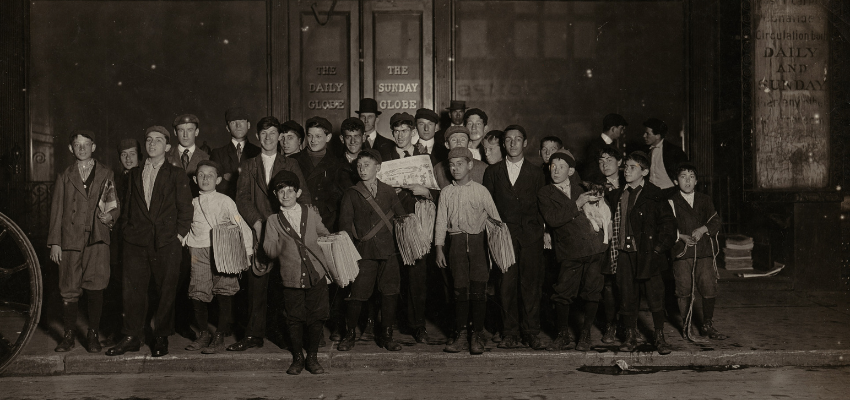Okay, so maybe ALL front-page news isn’t disheartening… but let me give you some context.
As the Communication and Journalism Librarian, I am preparing for a first-year workshop. In first-year journalism courses, I typically cover the following:
Basic library instruction
This workshop will cover the basics of library instruction (webpage, library hours, some important guides, and how to get additional help).
News databases and news sources
At our institution, I usually prioritize the following news databases. PressReader, Canadian Newsstream, Favtiva, and ProQuest Historical Newspapers.
For this particular class, I am preparing for an assignment which requires students to find the front page of The Globe and Mail as well as the Toronto Star for specific historical dates. The dates are students’ birthdays from specific years, for example, September 22, 1950.
ProQuest Historical Newspapers provides coverage of the Globe and Mail as well as the Toronto Star from 1844-2018 and 1894-2019 respectively.
What I noticed about front-page news…
I don’t know why I’m surprised, but in preparing for this presentation I was trying to find examples of big events to show people what the front page news looked like on certain dates. Here are the dates I came up with:
- April 16, 1912
- December 8, 1941
- August 7, 1945
- December 9, 1980
- September 12, 2001
Do you know the significance of the dates above? They are all one day after incredible world events. When I say incredible, I don’t mean positive. They are quite horrendous and devastating events. However, they stay in our minds long after the news coverage disappears. Can you think of any front page newspaper coverage of a major event that was positive? It is certainly more difficult.
Historical dates that made the front-page
- April 16, 1912, is the day following the sinking of the Titanic.
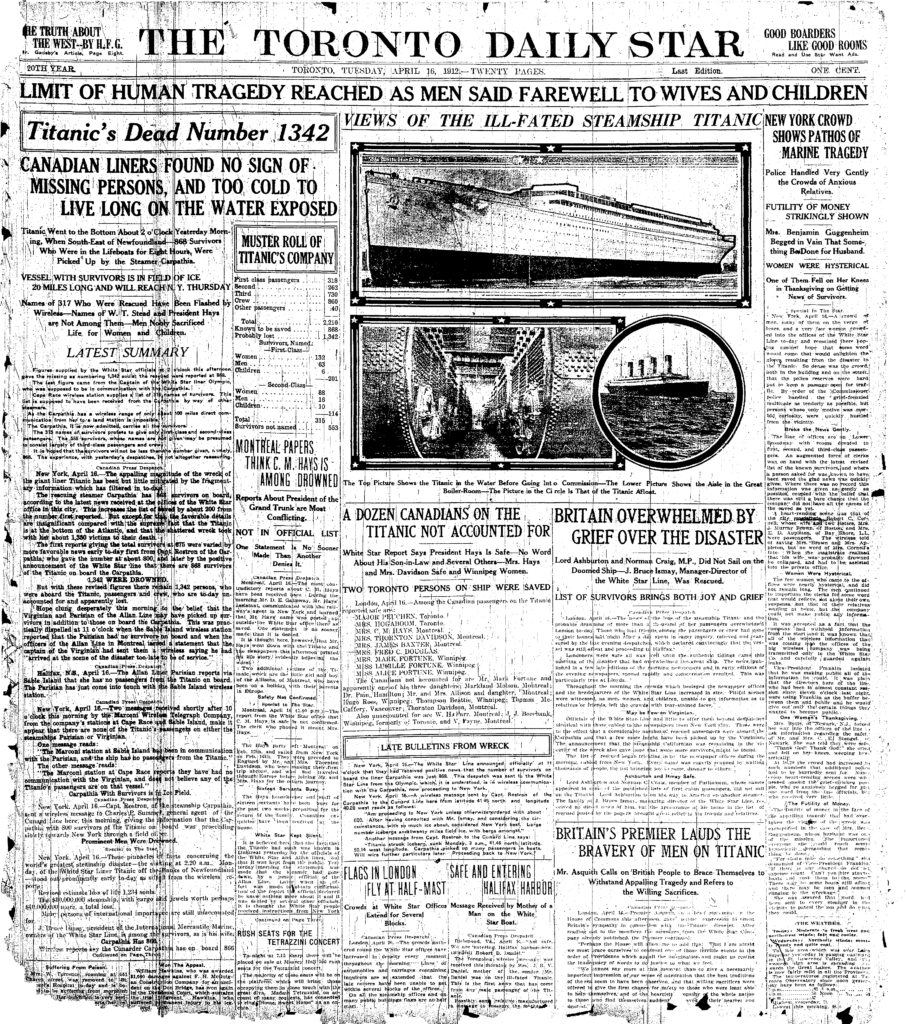
- December 8th, 1941, is the day after the attack on Pearl Harbour.
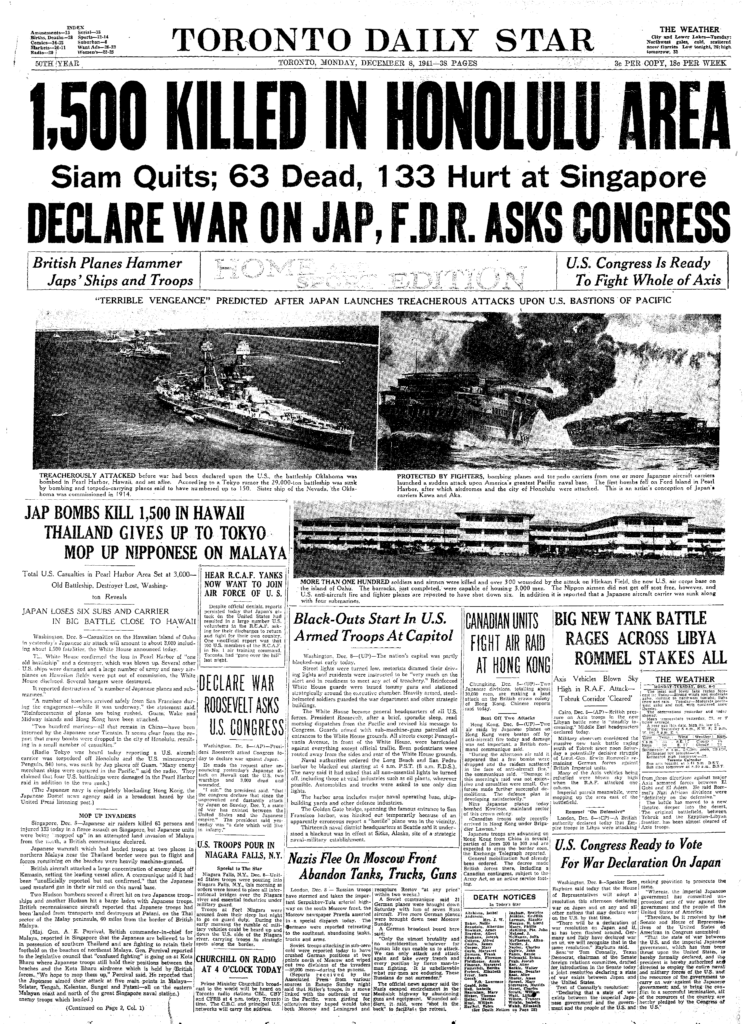
- August 7, 1945, is the day after the United States dropped the atomic bomb on Hiroshima.
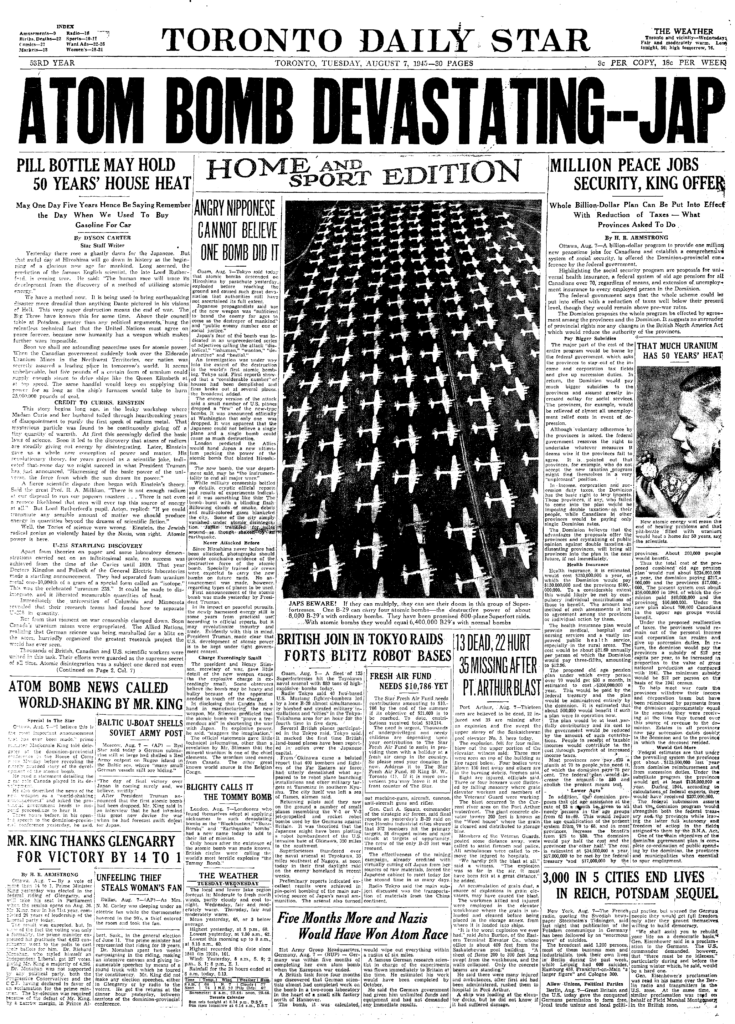
- December 9, 1980, is the day after John Lennon was shot in Central Park, New York.

- September 12, 2021, is the day after one of the most deadly terrorist attacks on American soil.

As I prepared for the session, I thought, why am I only able to think of negative front-page stories? I think that’s because we tend to remember negative events more than we do positive stories on the front page of newspapers. They probably have more impact on our memory.
In reflection, here are a few positive front-page stories.
- June 3, 1953, the day following the Coronation of Queen Elizabeth II (this may or may not be a positive thing).
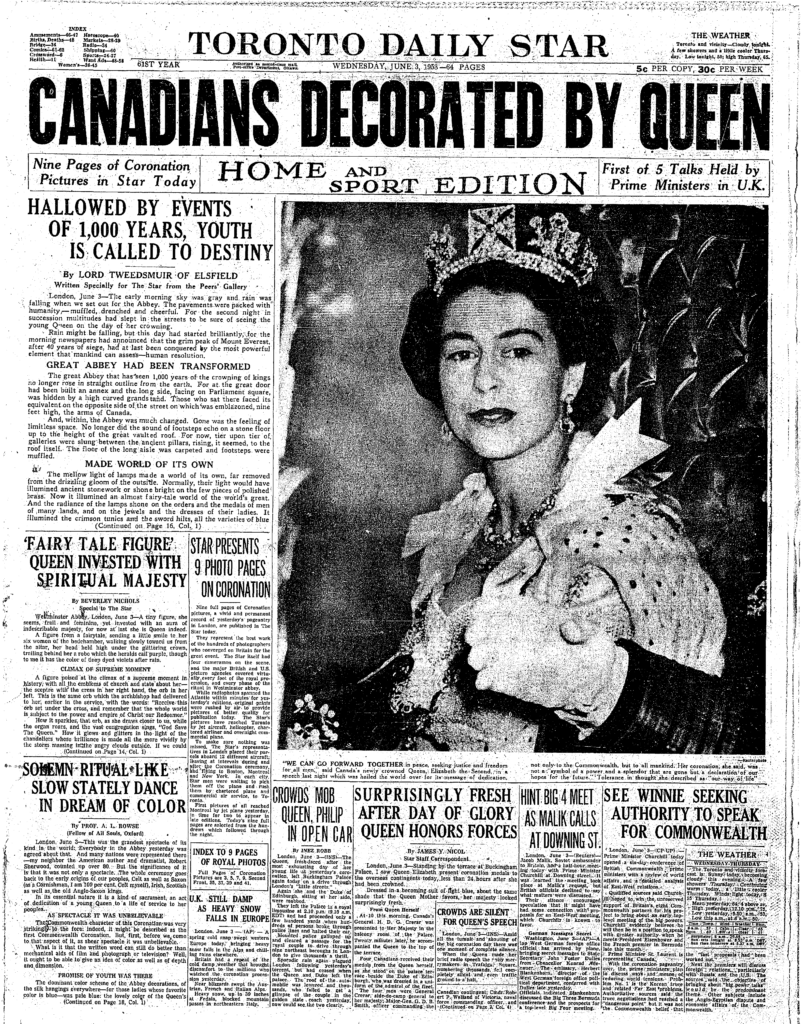
- February 22, 2002, the day following the Canadian women’s hockey team beating the U.S. team in the 2002 Salt Lake City Olympics.
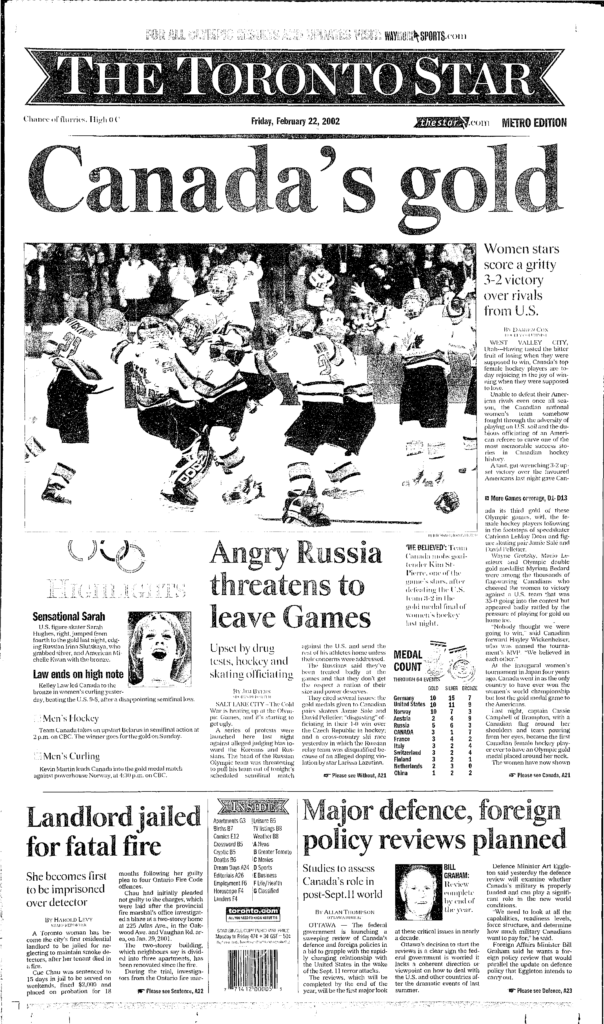
- July 21, 1969, newspapers worldwide celebrated a momentous milestone in human history as they proudly proclaimed the historic achievement of “Man Walks on the Moon!”
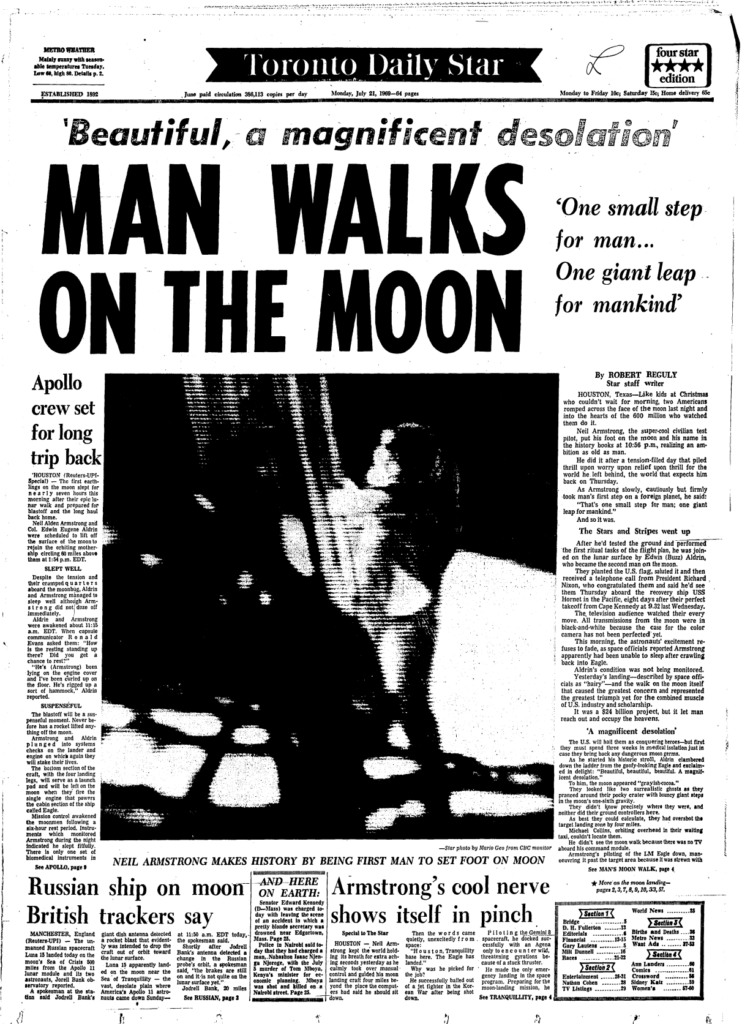
If you were teaching historical newspaper searching (front-page specifically). What stories would you use in the classroom? Are they positive stories? or are they negative stories?
Header photo by Boston Public Library on Unsplash

